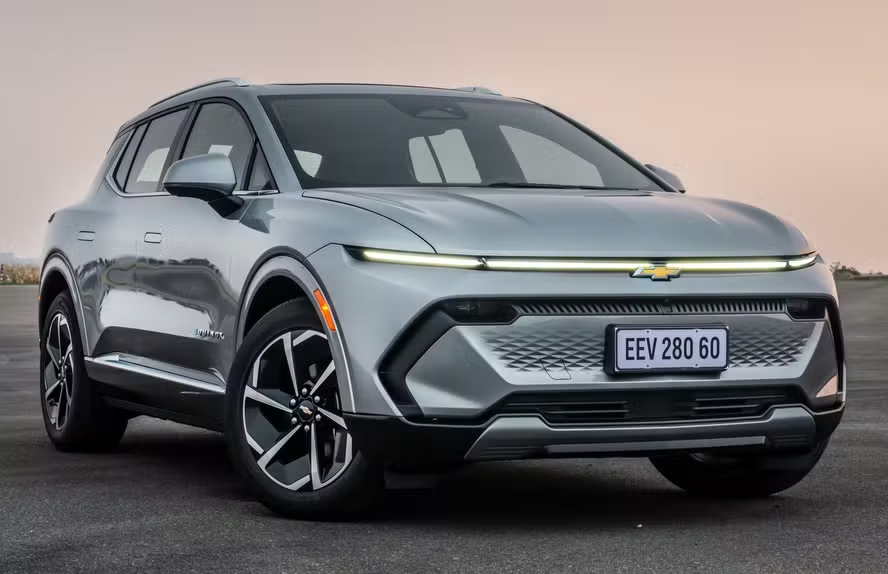In 2023, the automotive landscape continues to evolve with electric vehicles (EVs) steadily gaining traction over traditional gas-powered cars and hybrids. According to Bloomberg Green, global EV sales are set to exceed 14 million units by the end of the year, a staggering increase from previous years. As consumers weigh their options, the decision between electric vehicles, hybrids, and gas-powered cars becomes increasingly complex. This article will guide you through the performance and cost trends of these diverse vehicle types, helping you make an informed choice based on your needs and lifestyle.
Understanding the Basics: EVs, Hybrids, and Gas Cars
What Are Electric Vehicles (EVs)?
Electric vehicles rely entirely on electric power, using batteries to store energy that powers an electric motor. Brands like Tesla, Rivian, and BYD are at the forefront of this technology, offering models with impressive range and performance. According to InsideEVs, the Tesla Model S Plaid can accelerate from 0 to 60 mph in just 1.99 seconds, showcasing the potential of EVs.
Hybrids: The Middle Ground
Hybrid vehicles combine a gasoline engine with an electric motor, offering increased fuel efficiency. This technology is championed by brands such as Toyota and Hyundai. The Toyota Prius, for example, remains a popular choice for those seeking a balance between fuel economy and reduced emissions.
The Traditional Gas-Powered Car
Despite the rise of electric and hybrid vehicles, gas-powered cars remain prevalent. They are powered solely by internal combustion engines and have been the automotive standard for over a century. However, with growing environmental concerns and fluctuating fuel prices, their dominance is being challenged.
Performance Trends in 2023
Electric Vehicles: Leading the Charge
- Acceleration and Speed: EVs are known for their instant torque and rapid acceleration. The Lucid Air Dream Edition reaches 60 mph in just 2.5 seconds, setting a benchmark for performance.
- Battery Technology: Innovations in battery technology, such as solid-state batteries, promise longer ranges and shorter charging times. According to Battery University, these advancements are expected to hit the market by 2025.
- Range Anxiety: While EVs like the Tesla Model 3 offer ranges exceeding 350 miles on a single charge, charging infrastructure remains a critical factor. The expansion of fast-charging networks, such as those by Electrify America, is essential for alleviating range anxiety.
Hybrid Vehicles: Efficiency and Versatility
- Fuel Economy: Hybrids like the Hyundai Ioniq boast impressive fuel efficiency, achieving up to 59 miles per gallon (mpg) according to AutoCar.
- Performance Balance: While hybrids may not match the acceleration of EVs, they offer a balanced performance ideal for daily commuting and long-distance travel.
- Regenerative Braking: This technology enhances fuel efficiency by converting kinetic energy into electric power, an advantage unique to hybrids.
Gas-Powered Cars: Tradition Meets Innovation
- Engine Power: Gas cars still reign supreme in terms of raw engine power and top speed, making them a favorite among performance enthusiasts.
- Cost Efficiency: Despite fluctuating fuel prices, the initial cost of gas vehicles is often lower than their electric counterparts.
- Availability: With a vast network of fueling stations, gas cars provide unmatched convenience for long road trips.
Cost Considerations: What to Expect in 2023
Total Cost of Ownership: EVs vs Hybrids vs Gas
- Purchase Price:
– EVs generally have a higher upfront cost due to advanced battery technology.
– Hybrids fall in the mid-range, offering a compromise between cost and efficiency.
– Gas cars are typically more affordable, making them accessible to a broader audience.
- Maintenance Costs:
– EVs have fewer moving parts, resulting in lower maintenance costs over time.
– Hybrids offer moderate maintenance costs, with dual powertrains requiring occasional attention.
– Gas cars, with their complex engines, may incur higher long-term maintenance expenses.
- Fuel and Energy Costs:
– EV owners benefit from lower “fuel” costs, especially when charging at home.
– Hybrids offer significant fuel savings, particularly in urban environments.
– Gas prices remain volatile, impacting the cost-effectiveness of traditional vehicles.
Incentives and Tax Credits
- Governments worldwide are offering incentives to promote EV adoption. In the U.S., federal tax credits of up to $7,500 are available for eligible EV purchases.
- Hybrids may also qualify for incentives, though typically at a lower level than fully electric vehicles.
- Gas cars generally do not benefit from such incentives, making them less attractive in markets focused on sustainability.
Practical Tips for Prospective Buyers
- Consider Your Driving Habits: If you often drive long distances, a hybrid or gas car may suit your needs better. For urban drivers, an EV could be ideal.
- Evaluate Charging Infrastructure: Before purchasing an EV, assess the availability of charging stations in your area and your ability to install a home charger.
- Research Incentives: Keep abreast of local and federal incentives that could reduce the overall cost of an EV or hybrid.
Conclusion: Making the Right Choice for the Future
Choosing between an electric vehicle, hybrid, or gas-powered car in 2023 involves balancing performance, cost, and environmental impact. EVs are leading the charge with rapid technological advancements and growing charging networks, while hybrids offer a practical compromise. Gas cars, though traditional, continue to provide reliability and power.
As the automotive industry evolves, staying informed about trends and innovations will empower you to make a decision that aligns with your values and lifestyle. Which vehicle will you choose to drive into the future? Share your thoughts in the comments below, and stay tuned for more insights into the world of sustainable mobility.

